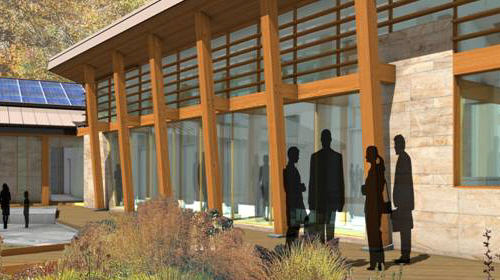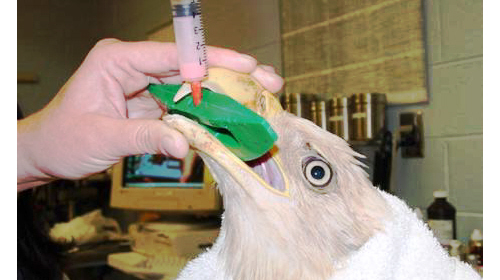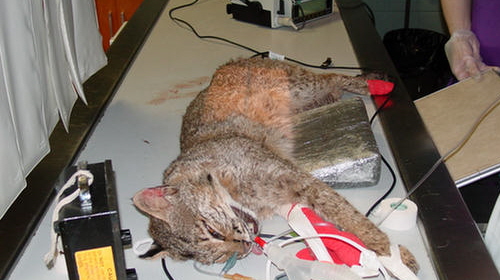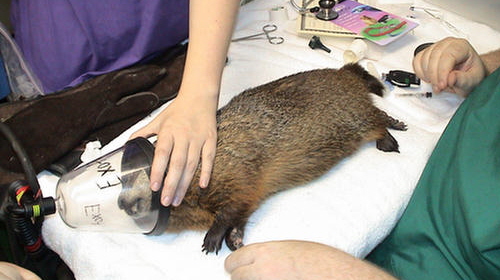IMPORTANT FACTS REGARDING GEORGIA WILDLIFE
DID YOU KNOW?
• The possession of wild animals is illegal in Georgia.
• Birds are protected by federal law and mammals are protected by state law.
• Violations of these laws can result in legal action and stiff fines being levied against you.
IT IS ILLEGAL TO:
Raise orphaned wild animals and birds even though your intentions are to release them when they are bigger.
Unfortunately, wild creatures become tame without interaction with others of their own species or if they are handled as pets. They have no fear of mankind and many end up being killed because they run up to people.
Wild birds can become imprinted on humans. Imprinted birds (especially hawks and owls) have no fear of humans and have been known to attack. Since they are imprinted on humans, they do not know enough to breed with their own species because their role model was a human. Unfortunately, human imprinting can not be reversed.
The GROW Hospital and Clinical Research Center (when completed) will provide a community service to people who are concerned about the welfare of injured or orphaned wildlife by providing a legal and professional means of assisting the people and wildlife involved.
GROW will operate under appropriate permits from the U.S. Fish and Wildlife Service and the Georgia Department of Natural Resources.
TO REPORT POACHERS CALL:
1-800-241-4133
NOTE:
It is illegal to live-trap wild animals without appropriate permits from the Georgia Department of Natural Resources. Trapping and relocating animals is not recommended even when legal. It is a short term solution. Animals are territorial creatures and it is not long before another creature moves in to claim the territory. Relocation causes stress for the animal, for young left behind and for existing populations at the place of release. It is illegal to relocate wild animals to any Georgia State Park.
Wild animals (even babies) can carry many diseases and parasites which can be transmitted to humans. These are called zoonotic diseases. Remember also, our own pets are also susceptible to many of these diseases and parasites as well. As you can see, there are many reasons people should not try to raise orphaned wildlife or keep them as pets.
We know people have good intentions, but when we care about wildlife, we need to care enough to do what is best for them. If you find an injured or orphaned wild animal, leave it where it is and call a wildlife rehabilitator (click link below for a list) located near you for assistance or advice.
(Sally Joosten is a founding Board member of The GROW Hospital and Clinical Research Center and has been a professional wildlife rehabilitator and educator, specializing in teaching others who are getting started in the field of wildlife rehabilitation since 1963. She is founder & former Director of McHenry County Conservation District Wildlife Center located in Illinois for twenty years beginning in 1975. She is a founding Board member of the National Wildlife Rehabilitators Association (NWRA) and Co-author of “NWRA Principles of Wildlife Rehabilitation, The Essential Guide for Novice and Experienced Rehabilitators” (1st and 2nd Editions). She is founding Board member and current Vice President of the Illinois Wildlife Rehabilitators Association. She has written numerous published papers. She was the recipient of the National Wildlife Rehabilitators Association’s Lifetime Achievement Award in 1998 and the National Registry of Who’s Who in 1999.)




















